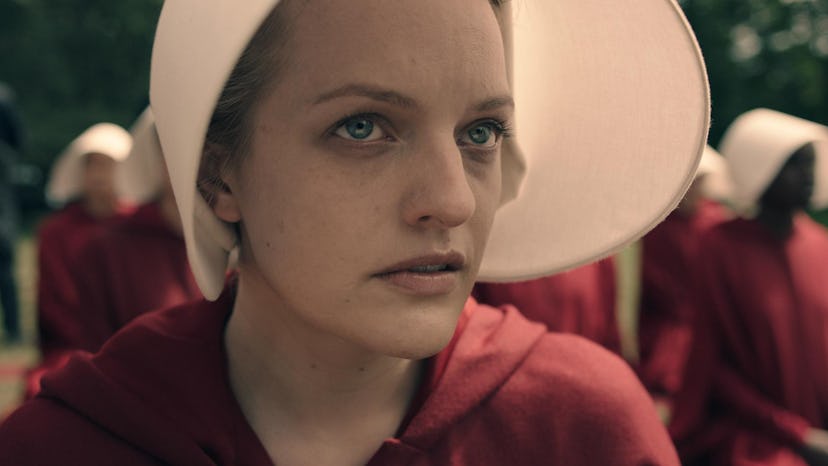The Handmaid’s Tale Looks Even More Torturous in Season Three

Back in February, nearly two hundred women dressed as characters from The Handmaid’s Tale appeared at the Washington Mall to film the third season of the Hulu show. Now we have a peek at what their gathering was for. It’s just a flash in the trailer for the upcoming season, which returns June 5, and judging by the look of the clip, the show will be no less painful to watch.
The trailer begins with Elizabeth Moss’s character, Offred, aka June Osbourne, addressing the resistance that’s brewing. “Heresy,” she says, “that’s what you get punished for—not for being part of the resistance, because officially there is no resistance; not for helping people escape, because officially there’s no such thing as escape…If I’m going to change things, I’m going to need allies—allies with power.” Enter Mrs. Waterford and possibly Aunt Lydia.
As daunting as finding allies might seem, June isn’t totally macabre about the future. “At least there’s still hope if I’m here,” she later says. “Now mom’s got work.” Of course, referring to herself as “mom” alludes to the fact that in this season she’s set on rescuing her daughter, Hannah.
When the showrunner Bruce Miller was asked whether or not June will be able to successfully save Hannah after the second season finale, he shared with Vanity Fair a mild spoiler: “She’s sketched out what she thinks she’s capable of doing in this particular moment. But she also knows that if it doesn’t work out, she has survived; she’s good at surviving. She’s capable of improvising…you and I are both worried [June]’s gonna die; she’s not.”
As for how closely the third season will stick to Margaret Atwood’s original novel, Miller told The Hollywood Reporter, “People talk about how we’re beyond the book, but we’re not, really. The book starts, then jumps 200 years, with an academic discussion at the end of it about what’s happened in those intervening 200 years. It’s maybe handled in an outline, but it’s still there in Margaret’s novel. We’re not going beyond the novel; we’re just covering territory she covered quickly a bit more slowly.”